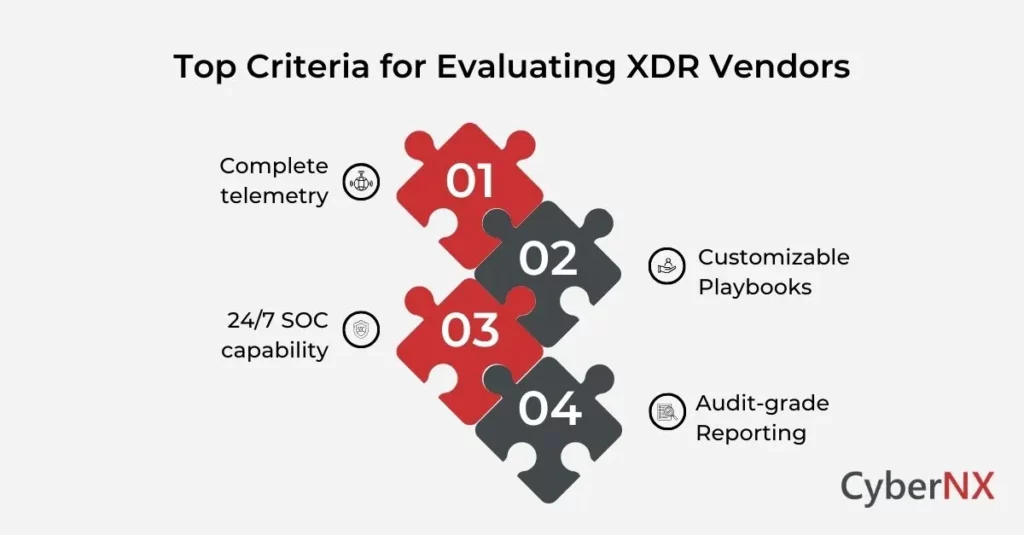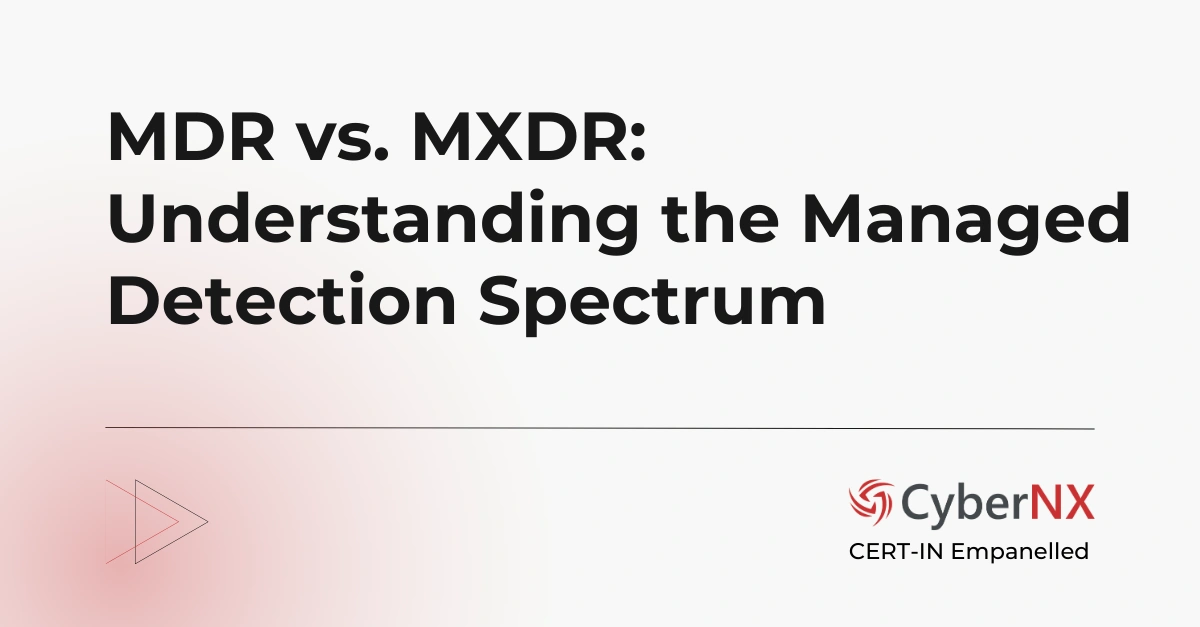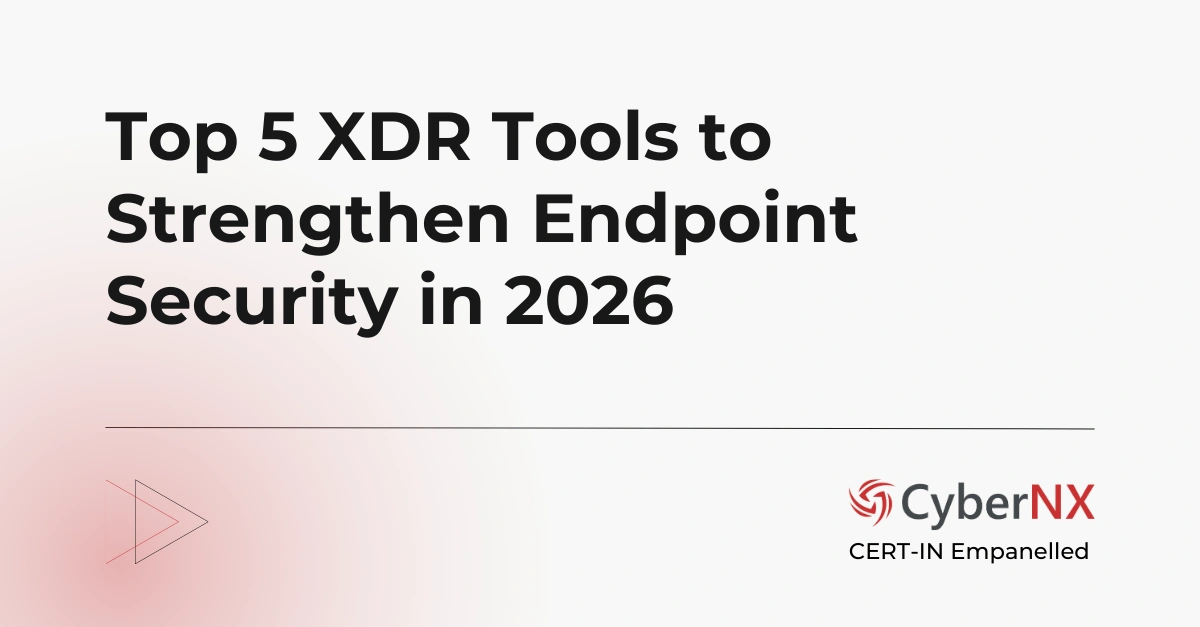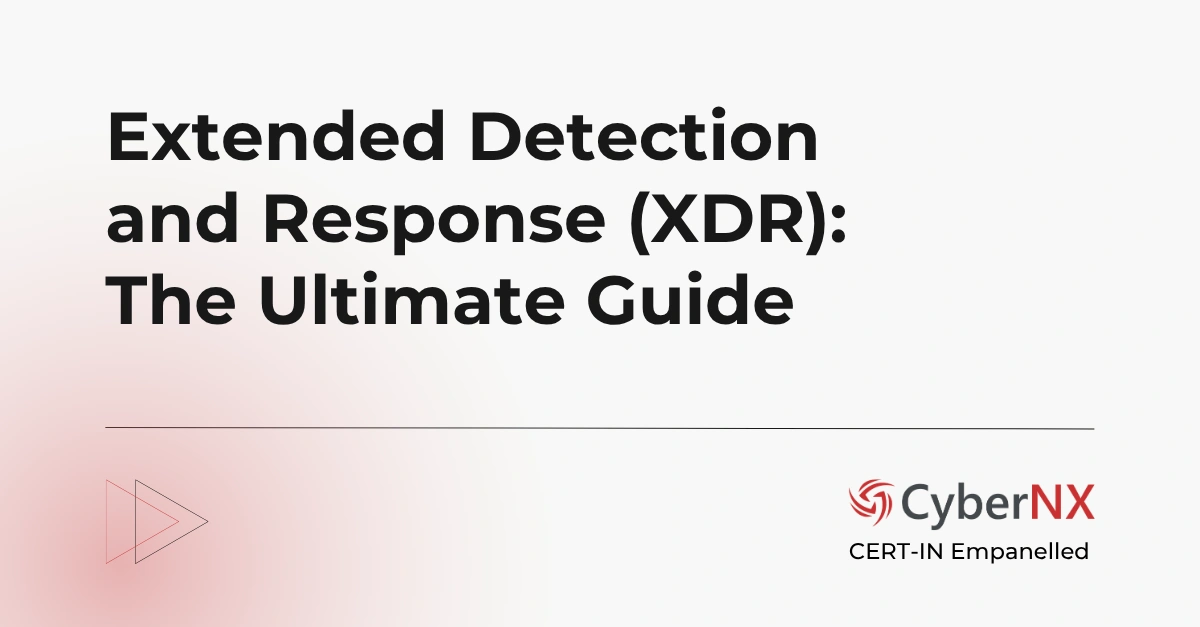A decade back, cyberattacks were just news headlines, happening in other parts of the world. Halfway through 2025, hybrid work, cloud-first apps and targeted supply-chain attacks have become a headache for IT security leaders in India too.
This means security teams need a comprehensive solution. Perhaps a platform that observes the entire IT ecosystem and responds quickly. That’s why choosing the right XDR vendors matters. The right partner reduces blind spots, cuts noise and turns alerts into confident action.
Why XDR matters for Indian organisations
Businesses in India – from startups to established enterprises – face a dual challenge: sophisticated attackers and tighter regulatory scrutiny. Best XDR vendors promise unified visibility across endpoints, cloud, email and network. Plus, automated response helps security teams to move faster without hiring large resources. This is especially valuable for teams stretched thin or operating across different regions, where compliance and data-residency rules differ.
XDR is also gaining traction in India due to rising cloud adoption, strict compliance mandates from regulators like CERT-In and RBI. Additionally, a shortage of skilled cybersecurity talent is driving XDR adoption. Businesses need unified visibility and automated response, making XDR a practical solution to strengthen defences without expanding in-house SOC teams.
At this point, it is important to understand the difference between XDR vendors and XDR platforms. XDR vendors are companies that offer XDR services. They may use their in-house XDR platform or other trusted, popular platform to help organizations. XDR platforms such as CrowdStrike Falcon are tools used for XDR and moreover, they offer XDR services.
Gain deeper level understanding of this advanced endpoint tool with our blog XDR Guide.
How We Shortlisted the List
In India, leading XDR platforms, trusted worldwide rule the roost. Thus, we have focused on proven technology and regional availability (is it available in India). Plus, partner ecosystems and real-world feedback from security researchers and practitioners. The short list balances vendors that are well-deployed and discussed by practitioners in public forums.
1. CyberNX
We have positioned CyberNX as the top choice for different reasons. For one, we are an emerging XDR service provider with capabilities of serving established enterprises across India, the US and the UAE. Our innovation-driven approach and latest technology adoption is a clear differentiator, providing best services to customers in affordable cost. In addition, we combine modern XDR tech with curated partner stacks to deliver measurable outcomes:
- Full-spectrum coverage across endpoints, cloud workloads, email and network so there are no blind spots.
- 24/7 threat monitoring by experienced security teams to ensure round-the-clock vigilance.
- Incident validation to reduce false positives – every alert is investigated and contextualised before it reaches you.
- Custom playbooks that automate response workflows tuned to your business risk and tech landscape.
- Compliance support with clear reporting and forensic artefacts to help meet regulatory obligations.
CyberNX’s managed and partner-driven model is designed to deliver high value for mid-market and enterprise customers seeking an outcome-oriented XDR service.
2. CrowdStrike (Falcon XDR)
CrowdStrike’s Falcon platform is widely used and often recommended for enterprises looking for cloud-native XDR capabilities and strong threat intelligence. Falcon converges EDR, cloud and identity signals into a unified view, and CrowdStrike has increased investments in India to support regional customers.
3. Palo Alto Networks (Cortex XDR)
Palo Alto’s Cortex XDR ties endpoint telemetry to network and cloud data to provide detection, correlation and response across layers. For customers with existing Palo Alto networking investments, Cortex often integrates tightly with NGFW and cloud controls – and the platform has regional deployment options important for Indian data concerns.
4. Microsoft Defender XDR
Microsoft’s Defender XDR (part of the Defender family) offers broad coverage across endpoints, identity, email and applications – attractive for organisations already invested in Microsoft 365 and Azure. Defender’s integration with Microsoft security services makes it a common choice for companies seeking consolidated tooling.
5. SentinelOne (Singularity XDR)
SentinelOne’s Singularity XDR focuses on AI-driven correlation and autonomous response, ingesting telemetry across endpoints, cloud and identity. It’s often mentioned in practitioner discussions as a solid choice for automated detection and rapid containment.
What to Look for When Evaluating XDR Vendors List
When you evaluate XDR vendors list, prioritize vendors and partners that deliver:
- Complete telemetry (endpoints, cloud, email, network) so you remove blind spots.
- 24/7 SOC capability or managed services to maintain continuous vigilance.
- Reliable incident validation so analysts receive high-fidelity, contextual alerts – fewer false positives, faster action.
- Customisable playbooks and automation mapped to your business risks and SLAs.
- Audit-grade reporting and forensic trails to simplify compliance and investigations.
Conclusion
The market for XDR vendors in India is maturing rapidly. Global platforms like CrowdStrike, Palo Alto, Microsoft and SentinelOne all bring strong capabilities. The deciding factor is how technology, partnerships and operational processes are combined to protect your business.
Extended Detection and Response or XDR service is a highly sensitive exercise. Plus, the XDR tools or platforms are complex.
The experts at CyberNX are experienced, certified and equipped to pair modern XDR tech with outcome-focused managed services and regional expertise across India, the US and the UAE. The XDR team also prepare tailored playbooks that deliver measurable security value. If you want an XDR partner that prioritises coverage, accuracy, automation and compliance, CyberNX presents an innovation-led option in the Indian market. Contact us today for XDR services.
XDR Vendors FAQs
How is XDR different from SIEM for Indian enterprises?
While SIEM aggregates logs from multiple sources, XDR goes further by applying analytics and automated response directly across endpoints, cloud, email, and network. For Indian organisations with limited SOC resources, XDR reduces manual effort by correlating threats and acting in real-time.
What compliance requirements can XDR help businesses in India meet?
XDR platforms support compliance with frameworks such as CERT-In guidelines, RBI’s cyber resilience directives for BFSI, and GDPR for firms handling global data. Automated reporting, forensic trails, and audit-ready dashboards simplify meeting diverse regulatory obligations.
Is XDR suitable for mid-sized companies, or only for large enterprises?
XDR is not just for large enterprises. Many mid-sized Indian businesses adopt managed XDR to gain enterprise-grade detection and response without the cost of building a 24/7 SOC. It’s particularly valuable for scaling companies in BFSI, fintech, and SaaS sectors.
What should I ask an XDR vendor before signing a contract?
Key questions include: How do they validate alerts to prevent noise? Do they offer local data residency options? How customizable are response playbooks? And importantly, what level of hands-on support and threat-hunting expertise will be provided?





